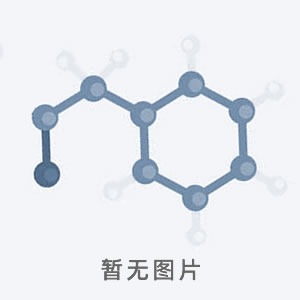本网站销售的所有产品仅用于工业应用或者科学研究等非医疗目的,不可用于人类或动物的临床诊断或者治疗,非药用,非食用。
Recombinant Human basic Fibroblast Growth Factor, 154a.a.
英文名:
Cas号:
Cas号:
检测信息查询

| 货号 | 规格 | 货期 | 库存 | 价格 | 促销价 | 订购 |
| 1308132844-10 μg | 0 | ¥2200 | ||||
| 1308132844-50 μg | 0 | ¥3800 |
| 别 名 | |
| Cas号 | |
| M D L | |
| 分子式 | |
| 分子量 | |
| 产品参数 | |
| 性状 | Recombinant Human basic Fibroblast Growth Factor, 154a.a. 是一种内皮细胞和成纤维细胞的有效有丝分裂原和化学诱导剂,含有 154 个氨基酸。
Synonyms rHubFGF, 154a.a.; bFGF; FGF-2; HBGF-2; FGFB Species Human Source E. coli Accession P09038 Gene ID 2247 Molecular Weight Approximately 17.1 kDa AA Sequence AAGSITTLPA LPEDGGSGAF PPGHFKDPKR LYCKNGGFFL RIHPDGRVDG VREKSDPHIK LQLQAEERGV VSIKGVCANR YLAMKEDGRL LASKCVTDEC FFFERLESNN YNTYRSRKYT SWYVALKRTG QYKLGSKTGP GQKAILFLPM SAKS Biological Activity The ED50 is <0.25 ng/mL as measured by 3T3 cells, corresponding to a specific activity of >4 × 106 units/mg. Appearance Lyophilized powder. Formulation Lyophilized after extensive dialysis against PBS. Endotoxin Level <0.2 EU/μg, determined by LAL method. Reconstitution Reconstitute the lyophilized recombinant Human basic Fibroblast Growth Factor, 154a.a. (rHubFGF, 154a.a.) to 100 µg/mL using ddH2O. Storage & Stability Lyophilized recombinant Human basic Fibroblast Growth Factor, 154a.a. (rHubFGF, 154a.a.) is stored at -20°C. After reconstitution, it is stable at 4°C for 2 weeks or -20°C for longer. It is recommended to freeze aliquots at -20°C or -80°C for extended storage. Shipping Room temperature in continental US; may vary elsewhere. Background Recombinant Human Basic Fibroblast Growth Factor is a potent mitogen and chemoattractant for endothelial cells as well as fibroblasts. Basic fibroblast growth factor (bFGF) is a heparin-binding mitogen for mesoderm-derived cells, also acts as a mitogen, differentiation inducing and maintenance factor for many neuroectodermal cells including glial cells, neurons, paraneurons, and their tumor counterparts. The molecule is expressed in several types of neuroectodermal cells. bFGF occurs in many neuronal target tissues, and can prevent ontogenetic as well as lesion-induced neuron death[1]. In vitro, basic fibroblast growth factor induces an angiogenic phenotype in endothelial cells, which includes chemotaxis, mitogenesis, protease production, beta-integrin expression, and tube formation in three-dimensional gels. It acts by binding to specific tyrosine kinase receptors and to cell-associated heparan sulfate proteoglycans[2]. |
| 贮存 |
- 5,8-DIBROMOQUINOLINE 81278-86-6
- Recombinant Human Betacellulin (HEK293-expressed)
- Recombinant Mouse Betacellulin
- Recombinant Human basic Fibroblast Growth Factor, 145a.a.
- Recombinant Human basic Fibroblast Growth Factor, 154a.a.
- Recombinant Human Bone Morphogenetic Protein-3B
- Recombinant Human CD19, Fc Chimera (CHO-expressed)
- Recombinant Human CD28, Fc Chimera (HEK293-expressed)
- Recombinant Human CD47, Fc Chimera (HEK293-expressed)

 小程序扫码下单
小程序扫码下单

 沪公网安备 31012002003054号
沪公网安备 31012002003054号